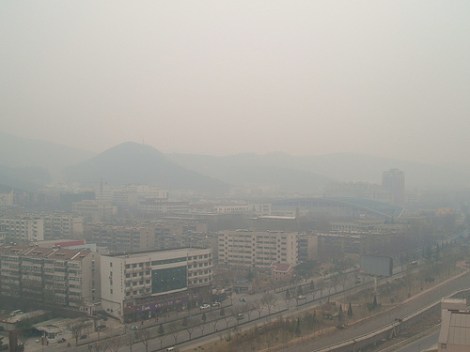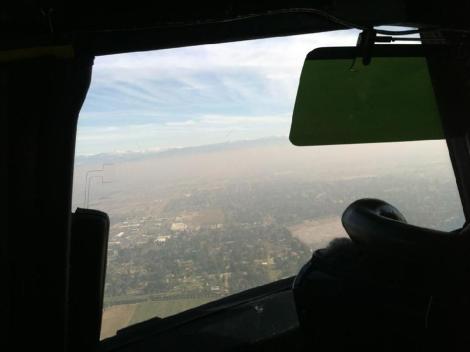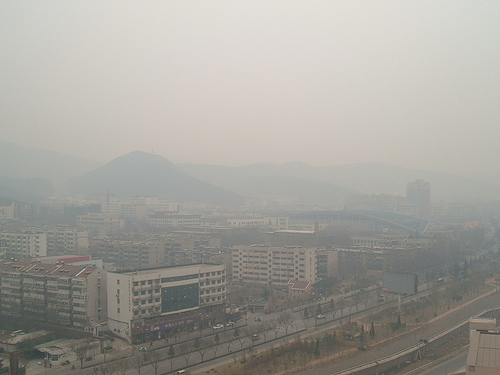
Sam_BBSmog in China.
My wife and I used to have an annoying neighbor. There were various ways in which he was annoying — he would holler every Sunday during the Saints games and would stand outside talking on his cell phone at all hours of the night. But most annoying was the smoking. He’d stand under our bedroom windows and smoke, the smell drifting into our apartment. Of all of his infuriating tendencies, this was the worst.
But at least what wafted into our clothes and lungs while we slept wasn’t toxic smog. That’s the problem Japan is having with its neighbor to the west. From Agence France-Presse:
The suffocating smog that blanketed swathes of China is now hitting parts of Japan, sparking warnings Monday of health fears for the young and the sick.
The environment ministry’s website has been overloaded as worried users log on to try to find out what is coming their way. …
Air pollution over the west of Japan has exceeded government limits over the last few days, with tiny particulate matter a problem, said Atsushi Shimizu of the National Institute for Environmental Studies (NIES).
Prevailing winds from the west bring airborne particles from the Asian mainland, he said.
These particulates are the same sorts of dust and soot that set records two weeks ago in Beijing. They’re deeply unhealthy, leading to asthma, other lung afflictions, and even heart attacks. While the pollution in China has inspired a cottage industry of solutions — canned air, house-sized domes, special face masks — such innovation is likely little consolation to the Japanese.
Nor is China’s pollution likely to stop in Japan. We’ve noted before that perhaps as much as a quarter of particulate pollution in California originates in China. It’s not entirely clear how much of the state’s air pollution, often detected by satellites, ends up at a breathable height. Today NASA is flying over the state’s Central Valley at various altitudes in an effort to determine how much particulate (and other) pollution is at ground level. The planes probably won’t detect China’s most recent pollution, given that it has just reached Japan, but some particulates from across the Pacific can certainly be expected.

NASAA NASA plane flies over Fresno.
There’s actually a straightforward solution to this. I would encourage Japan and California to send a doctor’s note to their landlord (the U.N., I guess?) saying they’re allergic to China’s pollution. And, if that doesn’t work, simply move. It won’t be easy, but trust me, it works.




